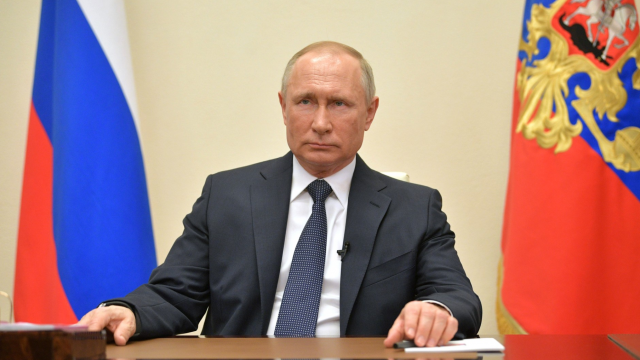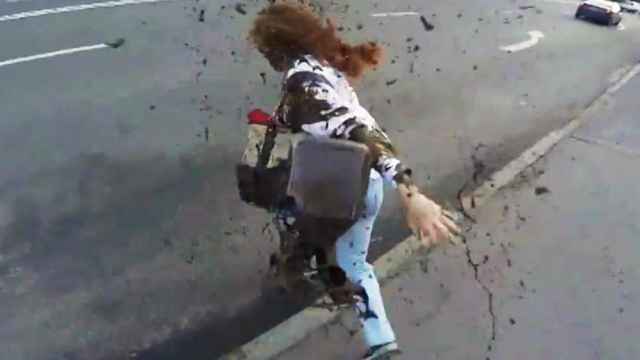At least 1,000 Russian journalists have fled their country in the nearly 12 months since Moscow invaded Ukraine, according to a new report on the state of the internet in Russia.
A number of mostly European countries have “accepted and helped keep and continue” the journalists’ work as Russia moved swiftly to clamp down on independent wartime reporting, the legal aid group Setevye Svobody (Net Freedoms Project) said Thursday.
More than three dozen journalistic teams and professional bloggers have found refuge in European countries like the Czech Republic, the Netherlands, Lithuania and Latvia, as well as the South Caucasus republic of Georgia, it said.
Together with those who have launched their own news channels on social media, the exiled Russian journalists “have formed a ‘second Runet’ free of state censorship,” the report said, using a common term for the Russian-language internet.
In its report titled “Two Runets,” Net Freedoms Project listed at least 12 Russian media projects that have been created outside Russia since the country effectively outlawed independent war coverage shortly after invading Ukraine.
“It was clear that an office and editorial board in Russia were not a prerequisite for a Russian audience and for covering the Russian agenda,” the project said.
It named YouTube and the Telegram messaging app as the last remaining platforms where Russians retain unrestricted access to independent projects.
But the Net Freedoms Project also highlighted issues Russian journalists face in exile, the most pressing of which are financial hardships associated with increased costs and reduced online monetization opportunities.
“Top bloggers’ revenues could have been reduced by up to 90%,” said the project run by lawyers Damir Gainutdinov and Stanislav Seleznyov.
A Message from The Moscow Times:
Dear readers,
We are facing unprecedented challenges. Russia's Prosecutor General's Office has designated The Moscow Times as an "undesirable" organization, criminalizing our work and putting our staff at risk of prosecution. This follows our earlier unjust labeling as a "foreign agent."
These actions are direct attempts to silence independent journalism in Russia. The authorities claim our work "discredits the decisions of the Russian leadership." We see things differently: we strive to provide accurate, unbiased reporting on Russia.
We, the journalists of The Moscow Times, refuse to be silenced. But to continue our work, we need your help.
Your support, no matter how small, makes a world of difference. If you can, please support us monthly starting from just $2. It's quick to set up, and every contribution makes a significant impact.
By supporting The Moscow Times, you're defending open, independent journalism in the face of repression. Thank you for standing with us.
Remind me later.






